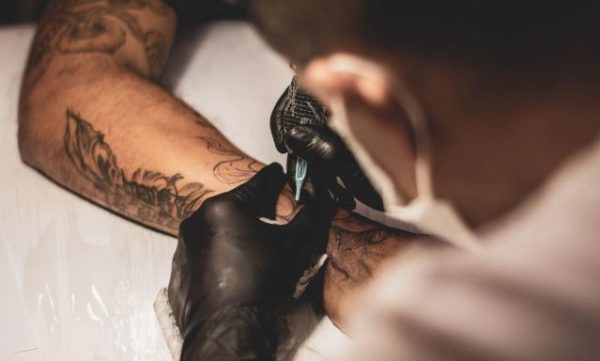Here are some groups of people who should exercise caution or consult with a healthcare professional before getting a tattoo:
Tattoos are a popular form of self-expression and artistry, but they may not be suitable for everyone.
1. Diabetics
Individuals with diabetes, whether it’s type 1 or type 2, should consult their healthcare provider before getting a tattoo.
Diabetes can slow down the healing process, making the tattooed area more susceptible to infections.
It’s crucial to manage blood sugar levels and follow medical advice to minimize risks.
2. People living with Lupus
Those diagnosed with lupus should approach tattooing with caution.
Lupus can affect the body’s immune system and may lead to delayed wound healing.
If you’re considering a tattoo and have lupus, it’s advisable to do so when your symptoms are stable.
Additionally, choose a reputable and hygienic tattoo facility to reduce the risk of infections.
3. Individuals with high blood pressure
High blood pressure can complicate the tattooing process.
It may cause excessive bleeding during the tattoo procedure and slow down the healing process afterward.
People with high blood pressure should manage their condition effectively and discuss their plans with a healthcare professional before getting a tattoo.
. Keloid-prone individuals
Keloids are raised, thickened scars that can develop after skin injuries, including tattooing.
People who are prone to keloids or have a history of excessive scarring should carefully consider whether getting a tattoo is a safe option for them.
Keloids can potentially form over the tattooed area, leading to aesthetic and health concerns.
5. Pregnant or breastfeeding individuals
It’s generally advisable for pregnant and breastfeeding individuals to avoid getting tattoos.
The body undergoes various hormonal changes during pregnancy and breastfeeding, which can affect the skin’s elasticity and healing capabilities.
Tattooing during this time may increase the risk of complications and adverse reactions.
Before getting a tattoo, it’s essential to prioritize safety and well-being.
Always consult with a healthcare professional or dermatologist if you have underlying medical conditions or concerns about how a tattoo might affect your health.
Additionally, choose a reputable tattoo artist and facility that follows strict hygiene and safety practices to minimize the risk of infections and complications.













